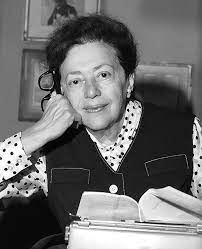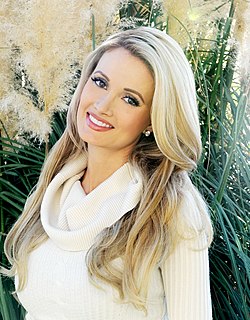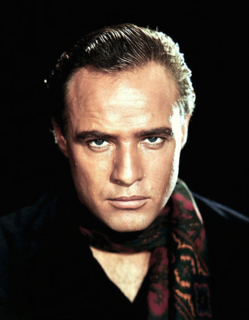A Quote by Diana Trilling
[On Marilyn Monroe:] I think my response to her death was the common one: it came to me with the impact of a personal deprivation but I also felt it as I might a catastrophe in history or in nature; there was less in life, there was less of life, because she had ceased to exist. In her loss life itself had been injured.
Related Quotes
At that moment a very good thing was happening to her. Four good things had happened to her, in fact, since she came to Misselthwaite Manor. She had felt as if she had understood a robin and that he had understood her; she had run in the wind until her blood had grown warm; she had been healthily hungry for the first time in her life; and she had found out what it was to be sorry for someone.
Occasionally, on screen, Barbara [Stanwyck] had a wary, watchful quality about her that I've noticed in other people who had bad childhoods; they tend to keep an eye on life because they don't think it can be trusted. After her mother was killed by a streetcar, she had been raised in Brooklyn by her sisters, and from things she said, I believe she had been abused as a child. She had lived an entirely different life than mine, that's for sure, which is one reason I found her so fascinating. I think her early life was one reason she had such authenticity as an actress, and as a person.
She had always been a reader… but now she was obsessed. Since her discovery of the book hoard downstairs from her job, she’d been caught up in one such collection of people and their doings after the next…The pleasure of this sort of life – bookish, she supposed it might be called, a reading life – had made her isolation into a rich and even subversive thing. She inhabited one consoling or horrifying persona after another…That she was childless and husbandless and poor meant less once she picked up a book. Her mistakes disappeared into it. She lived with an invented force.
She smiled. She knew she was dying. But it did not matter any longer. She had known something which no human words could ever tell and she knew it now. She had been awaiting it and she felt it, as if it had been, as if she had lived it. Life had been, if only because she had known it could be, and she felt it now as a hymn without sound, deep under the little whole that dripped red drops into the snow, deeper than that from which the red drops came. A moment or an eternity- did it matter? Life, undefeated, existed and could exist. She smiled, her last smile, to so much that had been possible.
One of my main wishes in wanting to write about my mother was to explore the impact of her death on my life, explore our relationship, think about the different versions of myself that I was with and without her. I also had the really strong wish to bring her to life for my children, who were born after she was gone.
Yet there were times when he did love her with all the kindness she demanded, and how was she to know what were those times? Alone she raged against his cheerfulness and put herself at the mercy of her own love and longed to be free of it because it made her less than he and dependent on him. But how could she be free of chains she had put upon herself? Her soul was all tempest. The dreams she had once had of her life were dead. She was in prison in the house. And yet who was her jailer except herself?
Like me, Marilyn Monroe had suffered at the hands of some not very nice men. She was used, unappreciated and struggled to find herself. She worked her way up in Hollywood with stars in her eyes and a kind heart, but found that Hollywood wasn't always as kind in return. She may have been publicly adored, idolized and lusted after, but she felt alone and trapped.
Do you remember when Marilyn Monroe died? Everybody stopped work, and you could see all that day the same expressions on their faces, the same thought: ‘How can a girl with success, fame, youth, money, beauty . . . how could she kill herself?’ Nobody could understand it because those are the things that everybody wants, and they can’t believe that life wasn’t important to Marilyn Monroe, or that her life was elsewhere
What do you think it would have been like if Valentine had brought you up along with me? Would you have loved me?" Clary was very glad she had put her cup down, because if she hadn't, she would have dropped it. Sebastian was looking at her not with any shyness or the sort of natural awkwardness that might be attendant on such a bizarre question, but as if she were a curious, foreign life-form. "Well," she said. "You're my brother. I would have loved you. I would have...had to.
She felt a stealing sense of fatigue as she walked; the sparkle had died out of her, and the taste of life was stale on her lips. She hardly knew what she had been seeking, or why the failure to find it had so blotted the light from her sky: she was only aware of a vague sense of failure, of an inner isolation deeper than the loneliness about her.
Will only looked at her. There had been light in his eyes on the stairs, as he'd locked the door, when he'd kissed her--a brilliant, joyous light. And it was going now, fading like the last breath of someone dying. She thought of Nate, bleeding to death in her arms. She had been powerless then, to help him. As she was now. She felt as if she were watching the life bleed out of Will Herondale, and there was nothing she could do to stop it.
We might have been ready to offer sympathy, but in actuality there were stronger reasons to want to congratulate her for having found such a powerful motive to feel sad. We should have envied her for having located someone without whom she so firmly felt she could not survive, beyond the gate let along in a bare student bedroom in a suburb of Rio. If she had been able to view her situation from a sufficient distance, she might have been able to recognise this as one of the high points in her life.



































